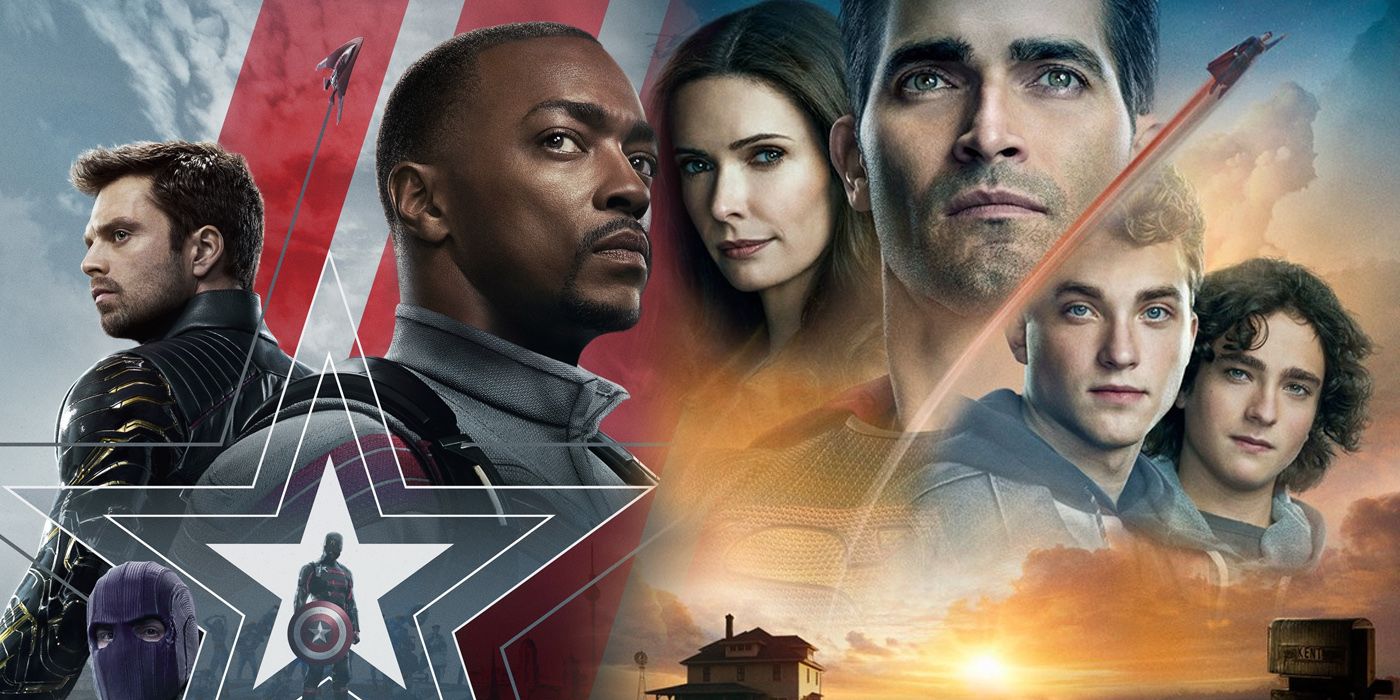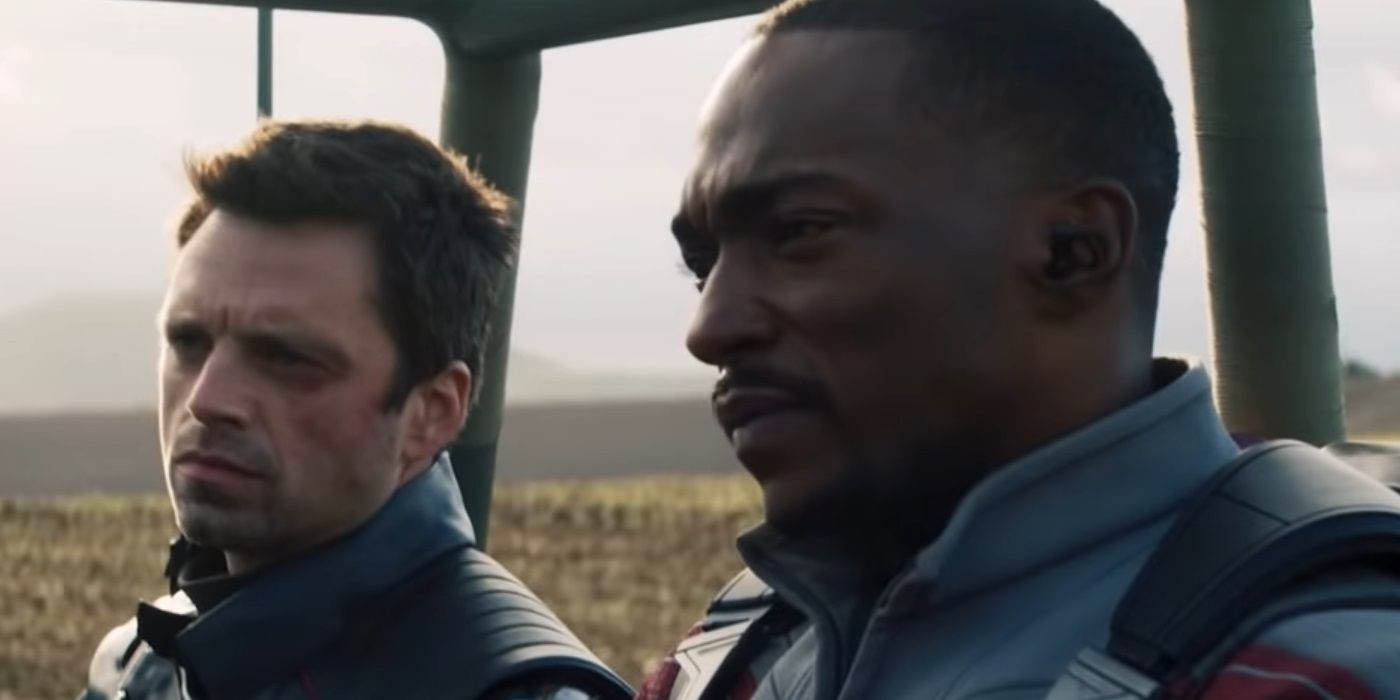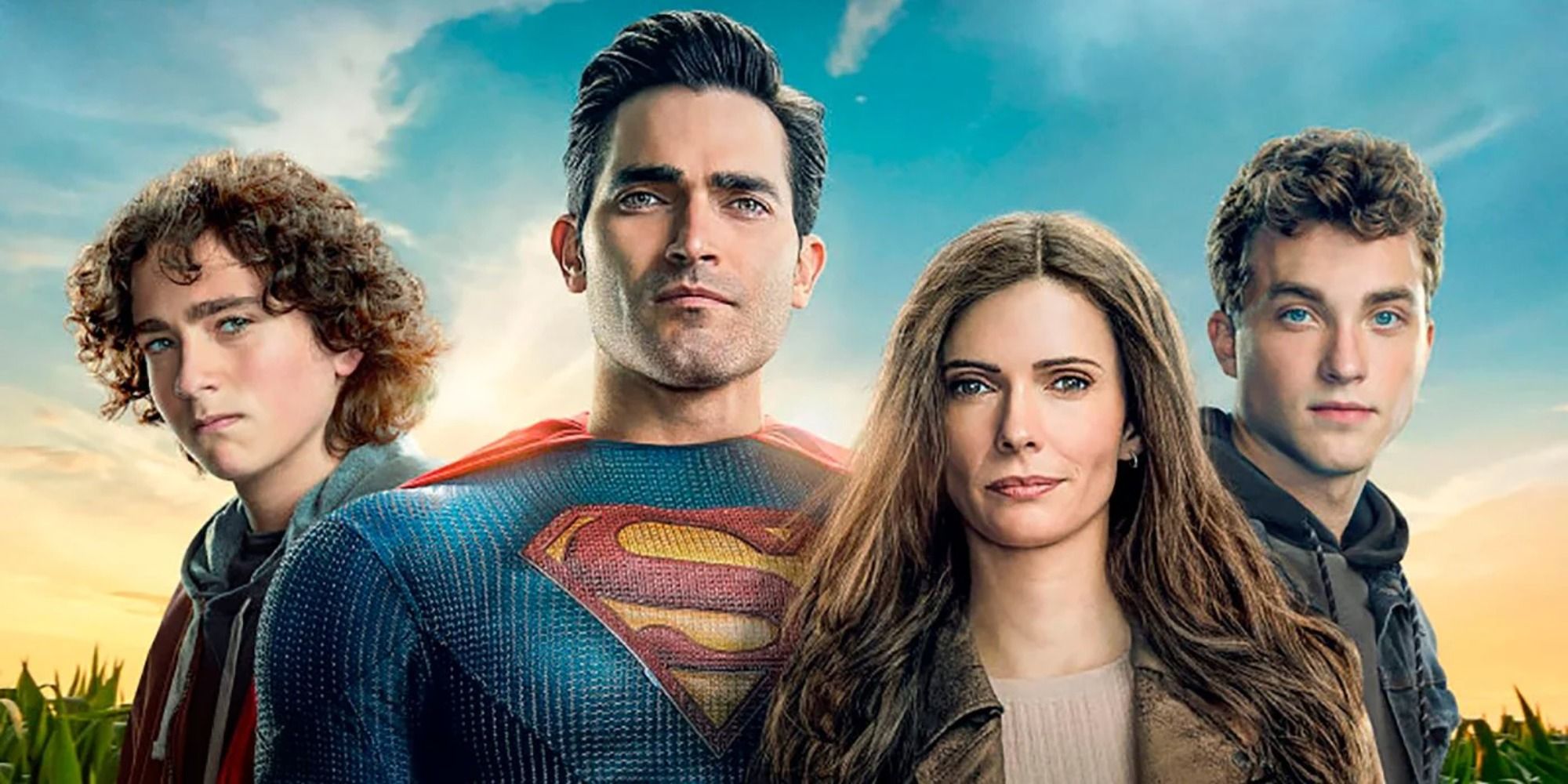Despite Superman & Lois featuring the Man of Steel as a lead, the Arrowverse show is keeping its story grounded, thus avoiding the biggest mistake the MCU made with The Falcon and the Winter Soldier. The CW's series focuses on Clark Kent and Lois Lane as a married couple raising two sons. Despite Clark being Superman — arguably the most powerful being on the planet, and likely Earth's most important hero — Superman & Lois uses conflict within the Kent household as its primary narrative conflict. In the Arrowverse, Clark already knows how to be a hero — but he's still learning how to be a dad.
So far, Superman & Lois has successfully distinguished itself from the rest of the DC titles — particularly other Superman-focused series like Smallville — by focusing on a different period in the hero's life. Superman & Lois season 1 centers on Jordan Kent developing powers, and the family moving from Metropolis back to the Kent farm in Smallville, giving the troubled teen a chance at a new start in a quieter environment. This comes at great personal cost to twin-brother Jonathan, who loses both his star quarterback status and his girlfriend. Still, the predominant theme of the series is family bonds, and although there is tension between the Kents, every person is incredibly supportive of their loved ones.
Superman & Lois is leaning into the CW's strengths: relationships. Rather than having each episode feature a "villain of the week," the Arrowverse show wisely reserves its action for small scenes — saving on the effects budget while still satisfying Superman fans — and lets the conflict between characters be the main narrative thrust. The Marvel show The Falcon and the Winter Soldier did the opposite: instead of focusing the short 6-episode series on the relationship of its two leads, the Disney+ show overcomplicated its story with the Flag-Smashers plot. That fatal mistake prevented Falcon and Winter Soldier from living up to its potential.
Falcon & The Winter Soldier Failed Its Premise
Falcon and Winter Soldier had a strong premise: Sam Wilson and Bucky Barnes coming together, coping with the unexpected loss of Steve Rogers and grappling with Captain America's future. The show's initial marketing presented the series as something like Marvel's version of a buddy-cop story. However, just like so many of the MCU movies, The Falcon and the Winter Soldier introduced a global crisis for its heroes to solve: the increasingly violent terrorist group, the Flag-Smashers, and the resurgence of the Super Soldier serum. The stakes became much higher than the reluctant partnership of Sam and Bucky — and as a result, their interpersonal drama took a backseat in the story.
There were many aspects of the Falcon and the Winter Soldier that worked really well, and largely, these are tied to strong characterization. Bucky's at his best when he's being introspective and flawed: the show hints that he is still drawn to violence, but is deeply ashamed of the Winter Soldier's violent actions. With Steve Rogers' Captain America gone, Bucky is more alone now than ever, being a relic of the past. All of the people he grew up with are dead or much older than he appears to be — and while he's grown accustomed to this new world, he acts perpetually uncomfortable. It's a theme the show sets up in the premiere but doesn't adequately address.
Falcon and Winter Soldier was poised to give Sam and Bucky a relatable, complicated, and resonant relationship — but this never came to fruition. Instead of genuine conflict between the two, the show relied on forced quips and odd-couple banter. Sam Wilson's past as a PTSD counselor made him the perfect figure to help Bucky cope with Steve Rogers going back to the past: something Bucky no doubt wished for himself, and — given his history with Steve in the MCU and how close they were — may have felt resentful of. At the same time, Bucky could have helped Sam on his journey to becoming the new Captain America. Bucky, as a white man, is ill-equipped to help Sam grapple with issues like systemic racism in America — but as a friend, he could have offered quiet support.
There are hints at the show that could have been in Falcon and Winter Soldier: in the ending, for example, when Bucky helps Sam fix up the boat and joins in on the family celebration, or the scenes of Sam and Bucky training with the shield together. The action in the series is often exciting and is executed well — but any antagonist would have worked for those scenes. Sam feeling such an affinity with Karli Morgenthau never made sense — he literally held her in his arms after she shot Sharon Carter, his friend. In general, the character motivations in the show were underdeveloped, all because not enough screentime was spent on exploring the relationships that mattered. This was the fatal mistake Marvel made with The Falcon and the Winter Soldier: not using the characters' relationships as the focus of the narrative.
How Superman & Lois Avoids Making The MCU's Biggest Mistake
The CW was wise to make Superman & Lois largely about the Kent family adjusting to major changes: the death of Martha Kent, the children learning the truth about their father, the family moving from Metropolis to Smallville, and the realization that boys could have inherited their father's Kryptonian powers. While there is a larger conspiracy at the heart of Superman & Lois season 1, the Morgan Edge plot is secondary to the story of Jordan discovering his powers and Clark trying to balance being a hero with being a father. The show isn't about super-powered beings donning costumes to beat up bad guys. While other Arrowverse shows have dealt with similar themes, Superman & Lois is the first to do so without focusing on being a superhero. For example, Black Lightning dealt with similar family themes, but is still primarily about Jefferson Pierce fighting The 100, and his daughter begins crimefighting almost immediately after discovering her powers.
Superman does appear in Superman & Lois and is presumably still averting Nuclear disaster and catching criminals, but much of this happens either offscreen or in brief subplots. The best moments in the show are scenes with Clark trying to coach Jordan, like the moment when he quietly tells his son to let out the built-up eye energy on the football field. These moments work because they're so earnest. While the circumstance is fantastic, the parent-child dynamic and the coming-of-age allegory are incredibly relatable. Clark doesn't know what to do, but he's trying his best. Jordan, as a typical teenager, lacks the maturity to make smart choices. He struggles to understand and control his powers, and he reacts to situations impulsively. He has the concerns of a typical teenage boy: his interest in a potential romance with Sarah, his newfound popularity thanks to football, and his emerging sense of self as he navigates puberty. Instead of scenes with Clark and Jordan stopping bank robbers or flying, audiences get glimpses of their family life; it's a story where the character motivations always feel genuine.
The relationships in Superman & Lois are realistically complicated and nuanced. Jordan and Jonathan Kent break the CW's warring brothers trope by being supporting and caring about each other, even when they disagree. Clark and Lois clearly love each other while having their own separate lives, and the show wisely avoids using Lois as a damsel in distress figure for Superman to save. None of the characters are perfect, with Clark in particular struggling with parental choices and the twin boys making the kind of dumb decisions teenagers make. Unlike The Falcon and the Winter Soldier, which overcomplicated its first season with unnecessary global stakes, Superman & Lois keeps the story grounded on its family dynamic, which is a refreshing new standard for superhero stories.



